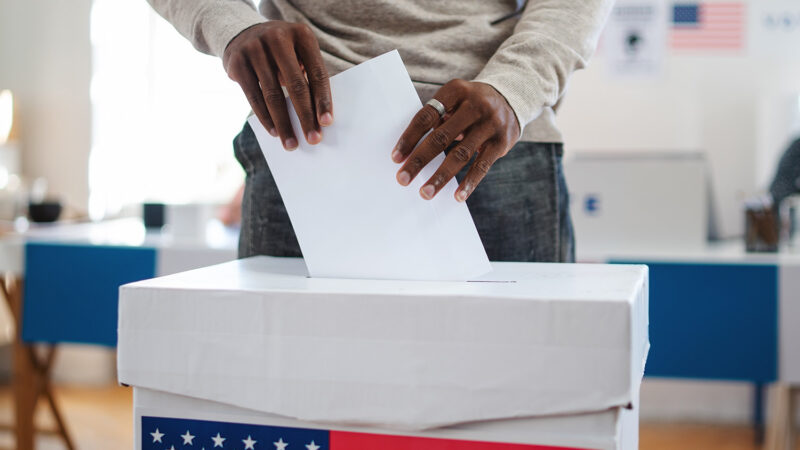Before joining Protect Democracy, Cameron was an associate at Gibson, Dunn & Crutcher and served as a clerk on the Fifth Circuit Court of Appeals.
Six justices agree: the independent state legislature theory is dead
- June 27, 2023
What this victory means, and what’s next

Today, the United States Supreme Court issued its opinion in Moore v. Harper; the result is a big win for voting rights and our democracy. In the Moore opinion, six Justices rejected the “independent state legislature theory” — the idea that state legislatures can regulate federal elections free of the checks and balances imposed by state law.
Indeed, they did so decisively: the six justice majority affirmed over a century of Supreme Court precedent recognizing that state legislatures must comply with state law when regulating federal elections. More importantly, the Moore decision didn’t just rely on existing precedent: it also engaged in an extensive originalist analysis of founding-era practice showing that state constitutions regulated federal elections at the time of the founding. That combination — the reaffirmation of existing precedent and the recognition that a proper originalist analysis precludes adoption of the independent state legislature theory — should ensure the independent state legislature theory is dead.
With the independent state legislature theory now fully interred, much of the analysis and litigation moving forward will likely focus on the portions of the Moore opinion recognizing that federal courts may second guess state court determinations of state election law when those state courts “transgress the ordinary bounds of judicial review.” That focus makes sense: if federal courts fail to be sufficiently deferential to state courts, it could create some of the very same problems that the independent state legislature theory might have — namely, a confusing mess where state election officials and voters would follow one set of rules for state elections and another for federal elections. Keeping an eye on these types of cases will be key, moving forward.
But for now, at least, the prospect of federal courts regularly second-guessing state court interpretations of state law is relatively unlikely for a few reasons.
For one, the analogies that the Moore majority used in its opinion for when interventions by federal courts are appropriate — such as interpretations of contracts that are so erroneous so as to violate the Constitution’s Contracts Clause or interpretations of property law that are so erroneous so as to constitute an unconstitutional taking of property — are the sort of thing where federal courts rarely, if ever, intervene. For another, while federal courts already have the ability under the Due Process Clause to second-guess state court interpretations of state law, they have rightfully articulated a very high standard for doing so. The result? Federal courts have only found state court interpretations of state election law to violate the Due Process Clause a small handful of times. And finally, federal court intervention in such circumstances — such as state officials or state courts radically reinterpreting state law to unexpectedly disenfranchise voters — may be a tool that creative lawyers can use to protect voting rights and prevent election subversion.
In short, the independent state legislature theory is truly dead. It’s okay to celebrate.
Related Content
It can happen here.
We can stop it.
Defeating authoritarianism is going to take all of us. Everyone and every institution has a role to play. Together, we can protect democracy.
Donate
Sign Up for Updates Sign Up for Updates
Explore Careers Explore Careers
How to Protect Democracy How to Protect Democracy


